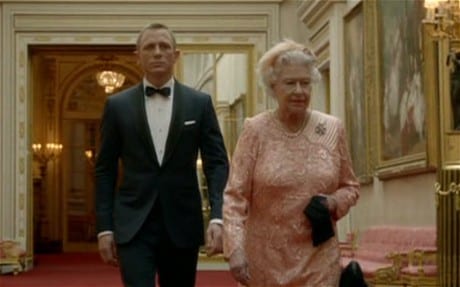The international magazine Monocole has released its third annual “Soft Power Survey – 2012,” an analysis in which states are judged by their ability to influence others through “attraction” rather than coercion. This survey both examines and seeks to push the debate on where soft power comes from as well as how to use it. Ranking first in this year’s survey—and taking the lead for the first time—is the United Kingdom.
As Monocle states on its website, “with current shifts in the global power balance, never has [the debate on soft power] been more relevant.” Britain placed first for a number of reasons, but as one commentator summarized:
“The Britain that the country has become was best summed up in the Olympics opening ceremony celebrating the national health service, birth of the World Wide Web, and Harry Potter. It united a nation that has often had trouble summing itself up, and was a brilliant advert to the rest of the world.”
Countries making the soft power countdown include Belgium for its consistency on business, diplomacy and education; Brazil for its “peace-loving citizens;” Finland for its problem-solving professionals; and Denmark for its popular music, art, architecture and design.

Among the top five countries are Sweden (considered one of the world’s friendliest countries), France (the home of exceptional culture and cuisine), and Germany (a European powerhouse with strong business brands and a popular soccer league).
The country the United Kingdom ousted for this year’s top role as a soft power nation was the United States, which was ranked first in 2011 for its unmatched cultural exports. “From Hollywood to country music to hip-hop,” the United States influence through soft power was unparalleled. Within this year’s “Soft Power – 2012” video, which briefly discusses the top 20 soft power nations, Monocole commended the United States for its vast humanitarian spending. As highlighted in the video, in 2012 alone, the United States spent $960 million on global food initiatives, $8 million on world health, and $480 million on preventing climate change. Making evident why the United States failed to place first in the rankings, the section ended by asserting that the “United States should rely more on these kind of investments than drone strikes to assert its authority overseas.”
In an interview with Daily Mail, Monocle‘s editor-in-chief Tyler Brûlé said that “the importance of soft power was more important in global influence than at any previous period of history.” In a time when states might be more prone to flex their military muscle, soft power is a largely undervalued currency. Xenia Dormandy, a senior fellow and U.S. expert at Chatham House, told the Daily Mail she believes the United States “has a tendency to focus on the tangible and the concrete” rather than on using soft power as a bargaining chip.
Although the full list of the 30 countries on the 2012 ‘Soft Power’ list can only be accessed by Monocle subscribers, the top 20 countries are discussed in the previously mentioned video and Daily Mail article.


